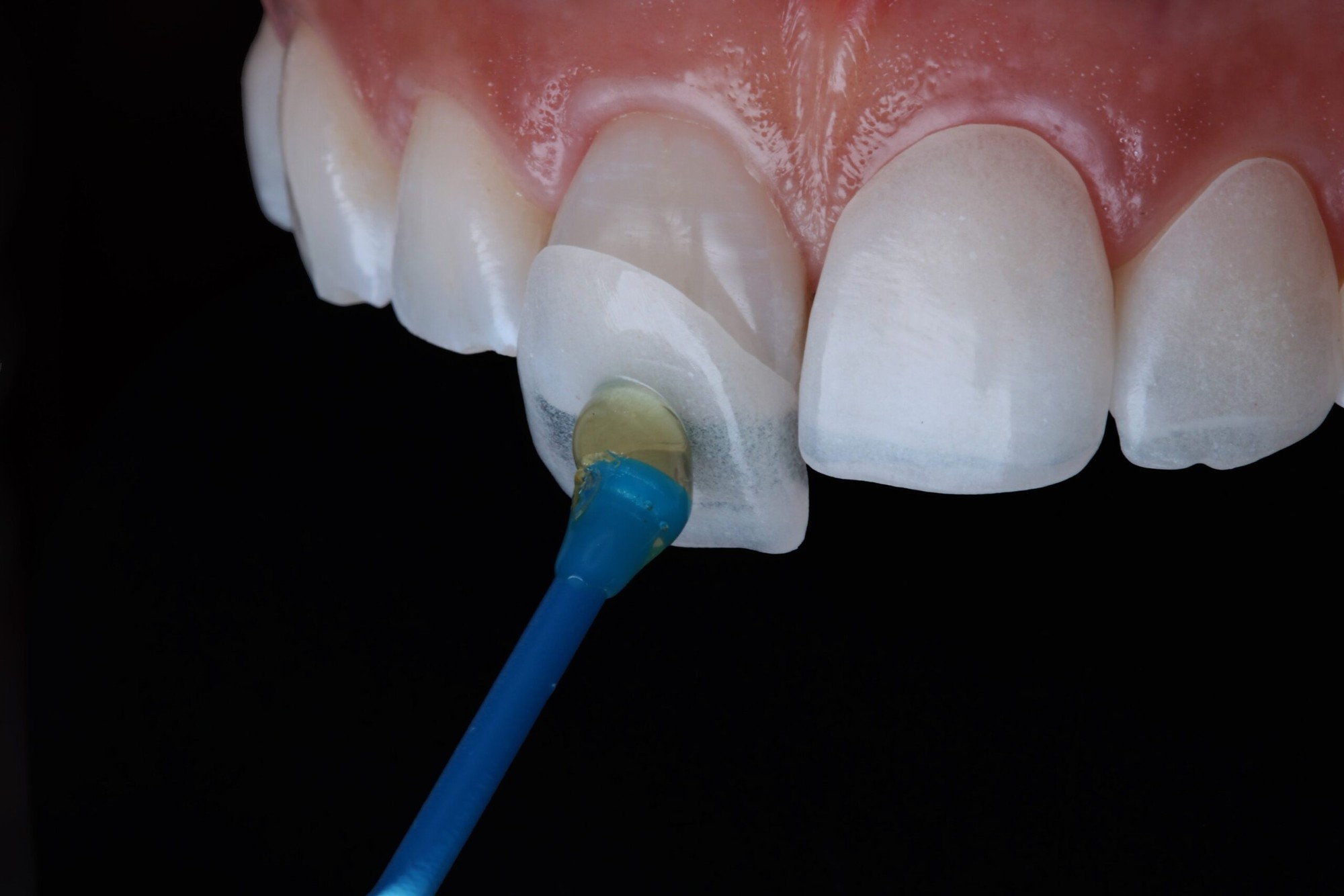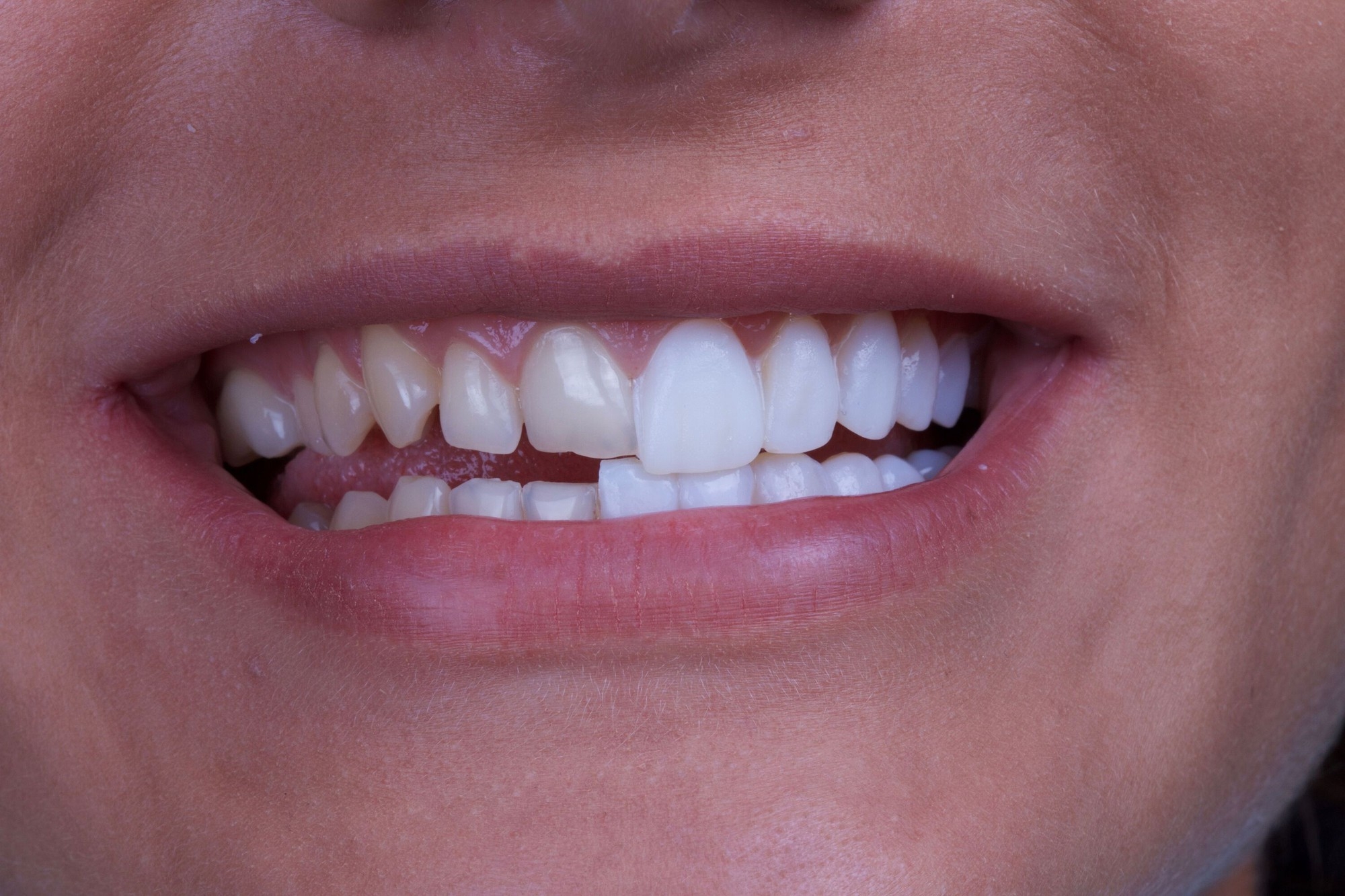If done correctly, porcelain veneers are quite safe and do not affect oral health, but if done incorrectly, it can lead to many bad consequences...
1. Improper porcelain bonding technique can cause sensitive teeth.
- Poor quality porcelain: To apply porcelain crowns, the tooth must be ground down by 0.2 - 0.5 mm, then the porcelain crown must be applied to the tooth surface. Therefore, if using poor quality porcelain of unknown origin, porcelain crowns will easily break, chip, fall off and affect chewing function. Poor quality porcelain crowns have poor heat insulation, making teeth sensitive and painful when eating hot or cold foods.
- Grinding teeth in the wrong proportion affects real teeth, causing toothache, discomfort, more sensitive teeth, and negatively affecting the tooth pulp.
Porcelain veneers can damage teeth if done incorrectly.
2. Affects the bite
Incorrect porcelain bonding technique that affects the bite is usually due to poor dentist skills. Incorrect porcelain bonding technique will cause the teeth to be bulky, and can even cause misaligned bite.
Usually, people with porcelain veneers will feel uncomfortable when chewing, and have difficulty using their front teeth to bite off food. If this condition persists, it will lead to oral diseases, the most serious of which is misalignment of the temporomandibular joint. In this case, you need to go to the dental clinic to adjust the porcelain veneers immediately to avoid serious consequences.
3. Affects real teeth
If the porcelain veneer technique is not done properly, the original tooth will be easily damaged: The real tooth will be loose, limiting the ability to chew. Therefore, the tooth grinding before porcelain veneer must be precise, creating a good fit between the veneer and the real tooth.
Porcelain veneers bring beauty to teeth.
4. Causes oral diseases
If the porcelain veneer is not applied properly, it can cause the tooth root to be exposed, causing food to get stuck between the teeth, making it difficult to clean, thereby causing oral diseases: gingivitis, periodontitis, bad breath, tooth decay, and more seriously, jaw bone loss...
5. Reduced root tooth life
Improper porcelain bonding techniques can also affect the longevity of real teeth. The reason is that dentists performing this technique are inexperienced, inexperienced, and careless. The consequences can cause teeth to become loose, or even lose teeth permanently.
To ensure the quality of porcelain veneers, please note:
- Choosing a reputable dental address: By choosing a reputable dental address, you will be examined, consulted, treated and given precise instructions on how to care for your teeth after porcelain veneers by a team of skilled and highly specialized dentists. Not only that, reputable dental facilities will have modern medical equipment to help diagnose and treat diseases effectively.
- Proper care for porcelain veneers: Practice proper oral hygiene such as brushing teeth with a soft toothbrush, dental floss, and water flossing twice a day after meals; do not eat tough, hard, sugary foods; avoid discoloring porcelain teeth (do not eat colored foods, limit smoking...).
- Regular check-ups: Regular check-ups will help the dentist detect any abnormalities that may arise during porcelain bonding so that they can be promptly treated and avoid serious consequences that may occur.
According to Dr. Phan Nhi/SK&DS
According to Dr. Phan Nhi/SK&DS
Source



















![[Motion Graphics] Things to note in the 10th grade entrance exam in Ha Tinh](https://vphoto.vietnam.vn/thumb/402x226/vietnam/resource/IMAGE/2025/6/2/1862624571b745329fa818efc4888f96)












































































Comment (0)